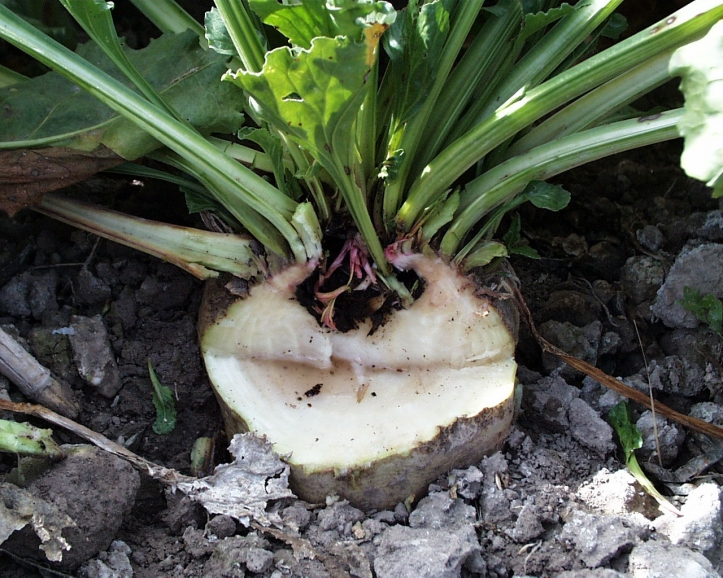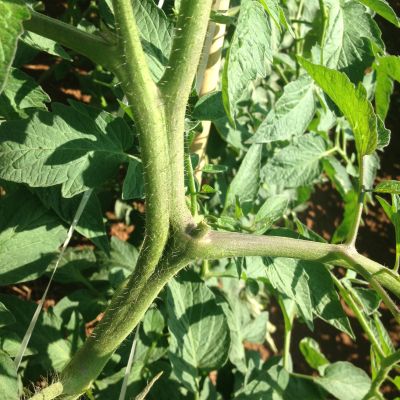You are here
This is why boron improves your harvest considerably

2 trace elements are the most critical in agriculture worldwide: boron & zinc. You can read more about the zinc deficiency in this blog post.
In this article we will focus on boron. A boron deficiency has an impact on as well the quality as the total yield of your harvest. So if you rather would like to avoid this, find out why the effect of boron can be so far-reaching.
Boron as a protagonist at the start
Especially in the beginning of the season, boron is essential. At that moment all plants, as well annual as perennial crops, are developing themselves. The plants are very active with the formation of new organs. If this process goes well, the plant can easily grow further without any interruptions. You build great things on good foundations.
Why is boron in it decisive? Boron ensures an orderly cell division. It ensures that the formation of new organs in the apical meristems is correct. Thus these organs, such as leaves, roots and flowers, will function perfectly later on. Without any doubt this process is of utmost importance on the further development of the plant and its fruits.
9 other functions that make boron so important
- stimulates flowering and pollen production
- increases fertility
- stabilizes the cell walls
- activates fruit set
- controls and reduces water consumption
- increases the resistance of fruit trees to frost
- plays a role in the internal transport of substances such as plant hormones, sugars and other nutrients (Ca, N, P).
- increases the absorption of K, Mg, Ca and P
- increases the sugar content in the reserve organs
This is how you recognize a boron deficiency
- poor pollination and a lack of seeds
- thicker, swollen and wrinkled leaves
- flattened new shoots, which sometimes are split like a fork.
- shorter and thicker internodes, with cracks (on the stems as well as the branches)
- more compact plant shape
- necrosis of the apex, what can lead to the formation of secondary branches



Why does a deficiency of boron arise and what do you do about it?
Boron deficiencies are usually the result of an erratic availability in the soil and a low mobility within the plant. For nutrients with a low mobility, it is important that they are absorbed continuously, during the entire growth cycle. This is certainly not always the case with boron.
Solutions are not always obvious. The non-chelated boron products have the same erratic availability in the soil and do not have a higher mobility within the plant. The boron ethalolamines and other organic boron products vary a lot in composition making the result of the application very uncertain. Only by means of chelation can we assure that the boron is completely soluble and easy to absorb by the plant under all conditions That is why BMS MN developed a specific boron chelate: Chelal B.
With Chelal B you can prevent and cure boron deficiency
This boron chelate is very similar to the natural chelates and therefore offers advantages.
- Chelal B ensures a good translocation of the applied boron through the plant: it nourishes the entire plant and not just the leaves.
- Chelal B remains its stability also when applied to the soil. The chelating agents protect the trace element against unwanted secondary reactions.
In practice: well-timed low dosages will give good results
Chelal B can be used in a very flexible way. We prefer always foliar applications, in the beginning of the season even if the product will partially be applied to the soil. The product can also be used through the drip irrigation and in nutrient solutions.
The dose of Chelal B is low and varies between 1 and 4 L per ha and per year. In most crops, an application of 1-2 L/ha will be sufficient. Good timing is important to achieve the best results. Chelal B has to be applied in function of the physiological stages of your crop. We advise you to consult the specific program on your crop page.
For those who want more information on our boron chelate
If you would like to know more about our boron chelates and their advantages, we invite you to download our whitepaper. We will discuss in more detail:
- The availability in the soil
- The mobility in the plant
- The chelates themselves
- The different boron fertilizers
Or contact us for a personal advice!